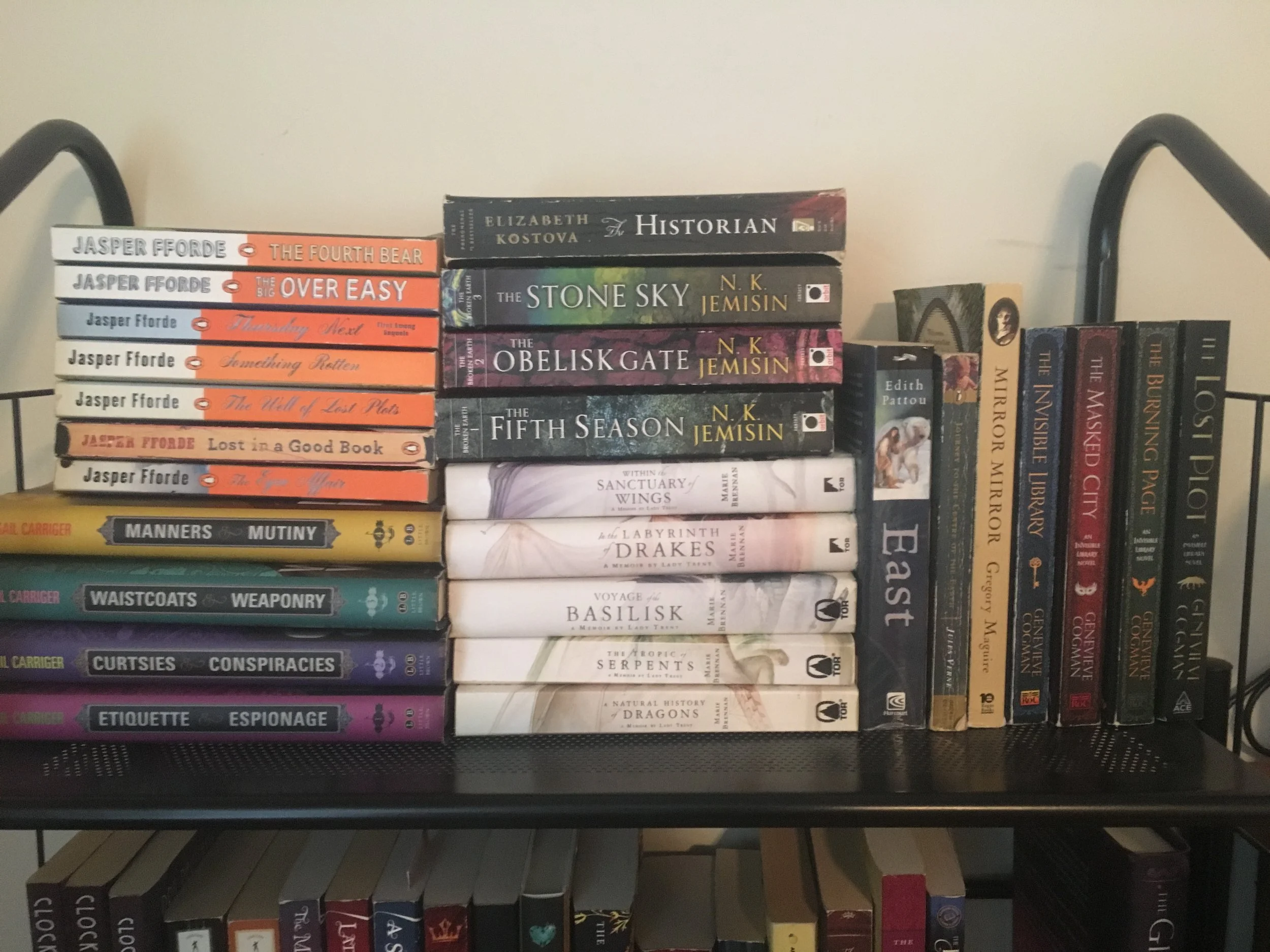The Underused Potential of Fantasy
Science fiction and fantasy are linked genres. They are shelved together at bookstores, and are widely considered to be one subcategory of fiction: sci-fi/fantasy. And that linkage is deserved. I always say that the difference between the two is whether the fantastical stuff comes from magic or science/aliens. There are books like The Dragonriders that blur the line between the two until it is indistinguishable.
Yet despite these similarities, science fiction has a history of pushing and challenging the strictures of society and while fantasy just … doesn’t, much to its detriment.
Science fiction is known for pushing the envelope on social issues and change. Whether its Kirk and Uhura’s interracial kiss in the ‘60s or The Windup Girl exploring a dystopia where oil is gone and food is so genetically modified it’s controlled by corporations, science fiction looks at deeper issues in our world, and explores them. It might be making commentaries on the dangers of where society might go, or explorations on how a complete different society might exist, like in Ancillary Justice.
And yet fantasy doesn’t have that reputation. Fantasy, by and large, does not reorder society in new and revolutionary ways, even though, like science fiction, it is not actually bound by the rules of our world.
Part of this is JRR Tolkien’s fault. The father of what we consider fantasy looked back, into myths and legends, to inform the worlds he created. And most of those who followed not only did the same, but looked to his example of a fantasy world to build their own. Since they were talking about elves and unicorns, they bound themselves to the societies in the past that believed in such things. And by looking to Tolkien’s work as a baseline, they also bound themselves to a male-centric and largely British-centric worldview.
By looking backwards, fantasy became in many ways versions of ancient mythos or historical fiction, but with magic. Steampunk is particularly extreme example of this. But fantasy novels, despite what convention seems to demand, are not actually bound by history. If you can have elves, you can have a matriarchy. If you can have werewolves, you can have people changing genders via magic or based on the full moon or something.
Being inspired by the past and its beliefs are different than being constrained by them. You can create a faux-medieval Europe with gender equality if you want, just as you created one with magic. Both are equally apocryphal. Yet far too many authors seem to constrain themselves, rather than use the world of fantasy to push our understanding of society and its issues, just as science fiction has done for decades.
This is not to say that no fantasy authors have used the genre to highlight or explore social or political issues. The brilliant NK Jemisin has done so in all of her books. The Tiger’s Daughter, by K Arsenault Rivera is another example of fantasy more willing to explore a different version of the world.
Nor am I trying to say that all fantasy needs to push that envelope. Urban fantasy, or something like Harry Potter, is directly connected to the real world, so by definition it has to operate under real-world constraints. And to be perfectly honest, one of my all-time favorite fantasy series is The Riftwar Saga, which was published in the 1980s and hits probably every single fantasy trope that exists.
But fantasy, like science fiction, has the luxury of being freed from the rules of the world. And yet it ignores that opportunity, by and large, and instead voluntarily constrains itself to a much more limited world-view and smaller set of appropriate stories. And there is no compelling reason for that to be true, aside from a lack of will and imaginations on the part of writers, agents, and publishers. And if the genre can break free of its self-imposed shackles, who knows what incredible stories will be told.





